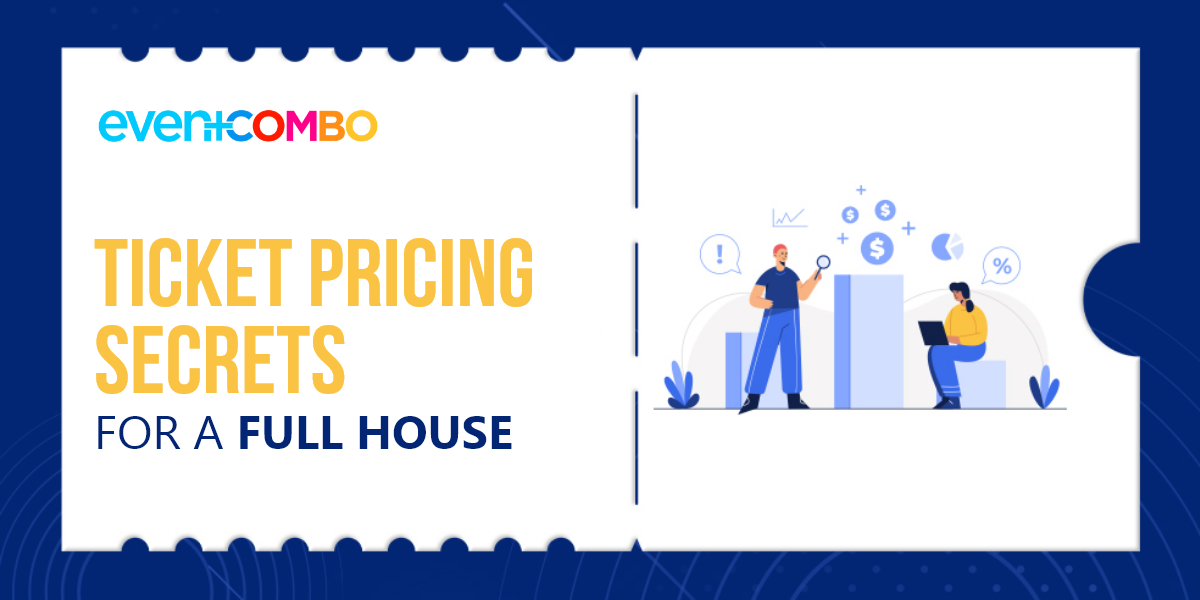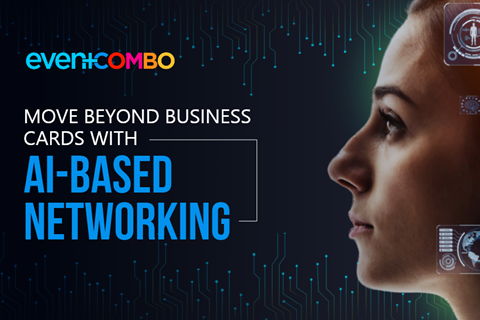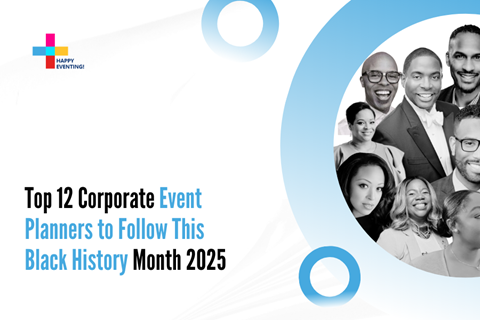

In a perfect scenario, you orchestrate an impeccable event, complete with meticulously crafted ticket prices that exceed all ROI targets. Your strategic blend of event ticket pricing strategies dazzles management, resulting in impressive attendance figures.
However, reality often diverges from this idyllic vision, particularly in today's dynamic and fiercely competitive landscape. Determining the optimal event ticket price demands a nuanced understanding of your audience, brand identity, product or service offerings, and the unique characteristics of your event. Even the slightest miscalculation can reverberate significantly throughout your ticket sales.
But fret not. In this guide, we'll navigate the intricacies of setting the perfect ticket price for maximizing sales.
How Do You Find the Right Event Ticket Price?
Discovering the optimal ticket price entails four essential steps:
Let’s delve into each of these steps in detail.
1. Analyze the Factors Affecting Event Ticket Pricing
The determination of event ticket prices hinges upon a confluence of factors. Understanding these elements is pivotal in crafting a pricing strategy that strikes the delicate balance between profitability and accessibility.
Market Demand: Central to pricing considerations is the ebb and flow of market demand. The allure of your event, propelled by factors such as the prominence of featured artists or speakers, venue capacity, and the overall buzz surrounding the occasion, underpins demand dynamics.
For instance, events headlined by megastars like Taylor Swift and Beyoncé often witness robust ticket sales even at elevated prices, indicative of an inelastic demand. Conversely, a decrease in ticket demand in response to escalating prices signifies an elastic demand, necessitating a nuanced approach to pricing strategies informed by market dynamics.
Venue Size: The spatial dimensions of your chosen venue wield significant influence over event ticket pricing strategies. Larger venues endowed with expansive seating capacities afford greater flexibility in pricing, owing to the enhanced supply of tickets. Conversely, intimate settings characterized by limited availability necessitate higher ticket prices to offset operational costs. Additionally, ancillary charges such as venue fees contribute to the overall cost structure, thereby influencing pricing decisions.
Create and customize venues and manage bookings seamlessly with Eventcombo’s venue and facilities management software.
Financial Considerations: A comprehensive understanding of your financial parameters is imperative in shaping pricing strategies. Direct costs, encompassing raw materials and labor expenditures, alongside indirect expenses like overhead and marketing outlays, collectively inform pricing decisions. Striking a balance between cost recovery and profitability is paramount in setting sustainable ticket prices.
Perceived Value: The perceived value of your event, as discerned by prospective attendees, sponsors, and stakeholders, constitutes a critical determinant in ticket pricing deliberations. Events offering distinctive experiences or addressing pertinent pain points command higher price premiums because of their higher value proposition. External factors such as seasonal trends and travel restrictions further shape perceptions of value. They make it imperative to have a responsive approach to pricing strategies.
Competitive Landscape: The pricing strategies adopted by competitors also affect ticket prices. A thorough assessment of how analogous events are priced provides valuable insights, enabling informed pricing decisions. Leveraging successful pricing models employed by competitors helps you in setting competitive yet sustainable ticket prices.
Target Audience: The financial capacity and demographic profile of your target audience are instrumental in shaping pricing strategies. Rigorous analysis of audience demographics and income levels facilitates the calibration of ticket prices to align with affordability thresholds. While charitable endeavors may warrant more modest pricing structures to foster inclusivity, upscale gala events afford greater latitude in pricing commensurate with the preferences of affluent attendees.
Event format: In-person events are costlier because of comprehensive logistical arrangements. However, these investments are offset by the immersive experiences they offer. Their ticket prices can be higher compared to virtual alternatives. Similarly, hybrid events, blending elements of in-person and virtual engagement, entail additional logistical complexities, resulting in a higher ticket cost.
2. Calculate Your Break-Even Point
Once you've gauged the intricacies of event ticket pricing, it's time to crunch the numbers and determine your break-even cost. This figure represents the threshold at which your event's expenses are covered, providing invaluable insight into setting an optimal ticket price.
To begin, ascertain the total expenditure required to orchestrate your event, including fixed costs such as venue rental, equipment, and staffing. Let's say, for instance, your fixed costs amount to $20,000.
Next, factor in the variable cost per ticket, which in this scenario amounts to $5 per attendee.
Now, armed with this information, employ the break-even formula:
Break-even point = Sales price per unit × Break-even point in units
Let's assume you intend to sell tickets at $20 each. To determine the number of tickets needed to reach the break-even point, divide the fixed costs by the difference between the sales price per unit and the variable cost per unit:
Break-even point = $20,000 / ($20 - $5) = 1,333 tickets
Thus, you'll need to sell 1,333 tickets to cover your event's expenses and break even.
To estimate the total sales required to reach this break-even threshold, multiply the sales price per unit by the break-even point in units:
Total sales required = $20 × 1,333 = $26,660
Do remember: Consider gradually increasing the percentage of ticket sales required to break even, evaluating how improved outcomes can enhance profitability. By continuously refining your approach, you can optimize your event's financial viability and ensure its success.
3. Explore and Choose an Innovative Event Ticket Pricing Model
Once you've grasped the intricacies of event ticket pricing, the next critical step is to embrace a pioneering pricing model that optimizes revenue generation while enhancing attendee satisfaction. While traditional strategies like early bird discounts and VIP packages remain effective, delving into the realm of innovative pricing models can unlock new avenues for success. Here are the latest approaches brands are using to maximize profitability:
Dynamic Ticket Pricing: Embracing dynamic ticket pricing involves flexibly adjusting ticket prices in response to many variables, including demand fluctuations, temporal factors, competitor pricing, and consumer behavior patterns. By harnessing data analytics to glean insights into attendee demographics and market trends, you can strategically preset ticket prices to escalate after reaching predefined thresholds, thus maximizing revenue potential.
Value-Based Pricing: This model, also referred to as value-added pricing, focuses on aligning ticket prices with the perceived value of the event experience. Research has proven it to be an effective medium to boost revenue. By meticulously assessing attendee preferences and discerning factors such as speaker quality, experiential exclusivity, and overall value proposition, you can set prices that reflect the inherent worth of the event, thereby enticing attendees to willingly invest in the experience.
Tiered Pricing: Offering a spectrum of ticket tiers caters to diverse audience segments and enhances revenue potential. By stratifying ticket prices based on factors such as purchase timing or seating categories, you can extend accessibility while incentivizing premium upgrades.
For instance, differentiating between standard admission, premium access, and platinum privileges enables you to capture varying levels of attendee engagement and willingness to pay.
Strategic Discounts and Bundles: Leveraging targeted discounts and enticing bundles can stimulate ticket sales and foster attendee engagement. Time-sensitive discounts, loyalty rewards, and group bundles tailored to specific demographics create a sense of urgency and exclusivity, driving demand. Augmenting ticket bundles with value-added incentives such as VIP perks or exclusive merchandise further enhances their appeal, enticing attendees to invest in enhanced event experiences.
Pay-What-You-Can Pricing: For brands with flexible budgetary constraints, adopting a pay-what-you-can pricing model fosters inclusivity and community engagement. While not suitable for every brand, this approach cultivates goodwill and trust, enabling attendees to contribute based on their financial capacity, thereby broadening event accessibility.
Single-Day Multi-Day Pass: If your event spans multiple days, offering flexible multi-day passes empowers attendees to tailor their attendance based on availability and preferences. This versatile pricing model accommodates diverse scheduling constraints while maximizing attendance and revenue potential, making it an ideal option for both in-person and digital events alike.
4. Decide What to Charge for Your Event Tickets
With the groundwork laid and insights gleaned from meticulous market research and past event data analysis, the time has come to determine the optimal ticket price for your event. Implement a carefully chosen pricing strategy after a discussion with your stakeholders. Remember, pricing decisions are not cast in stone; they necessitate ongoing experimentation and refinement based on attendee feedback and market dynamics.
Utilize the insights garnered from market research and customer analysis to select a pricing model. Garner consensus from the senior management and ensure alignment with organizational objectives.
It's crucial to recognize that pricing decisions are dynamic and responsive to evolving circumstances. Leverage event ticketing software or an integrated event management platform to monitor ticket sales and analytics in real time, enabling you to adapt and refine your pricing strategies as needed.
Uncover the Best Ticket Price!
Setting the right event ticket price is a nuanced endeavor that requires a blend of strategic foresight, data-driven decision-making, and agility. By integrating innovative event technologies and leveraging the insights gained from past events, you can streamline the pricing process, maximize revenue potential, and enhance attendee satisfaction.
Does deciding event ticket prices make you anxious? Use Eventcombo's modern event management software to analyze different pricing strategies and set the best rates without feeling lost. Click here.

Networking is one of the most valuable ways to discover boundless opportunities and for 77.7% of business professionals , in-person conferences open a greater scope to make rewarding connections.

When planning a healthcare fair, the goal goes beyond booking a venue and sending out invites. You’re creating an event that brings together healthcare professionals, researchers, and exhibitors, all seeking value and...

Diversity and inclusion are at the heart of the events industry, where planners are focused on creating experiences that bring together people from all walks of life.